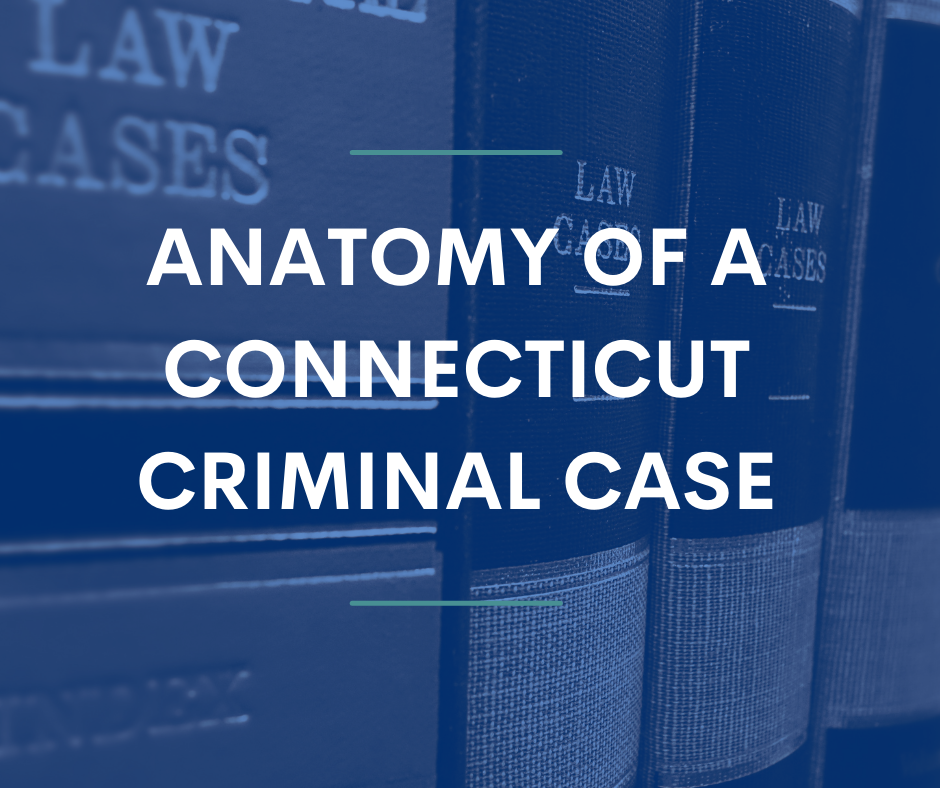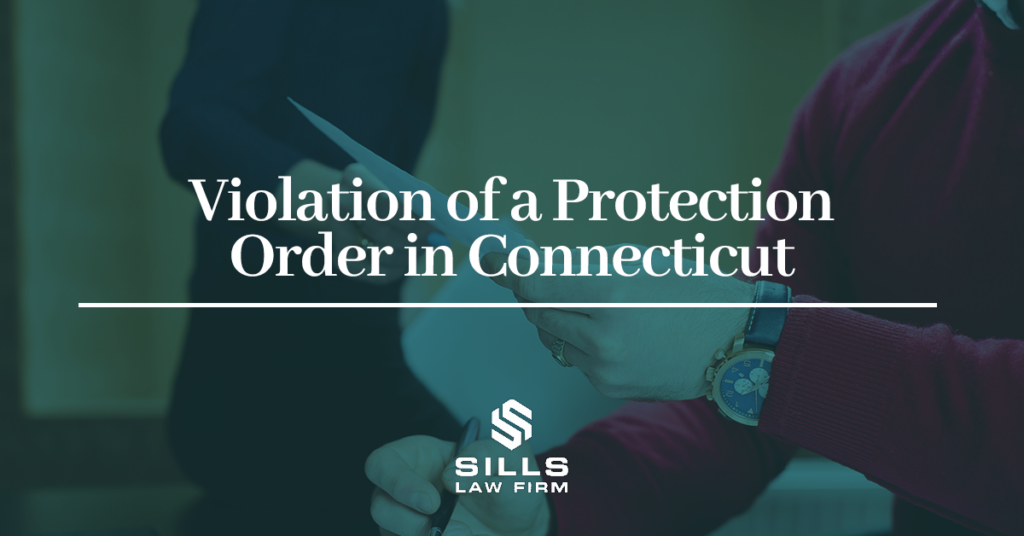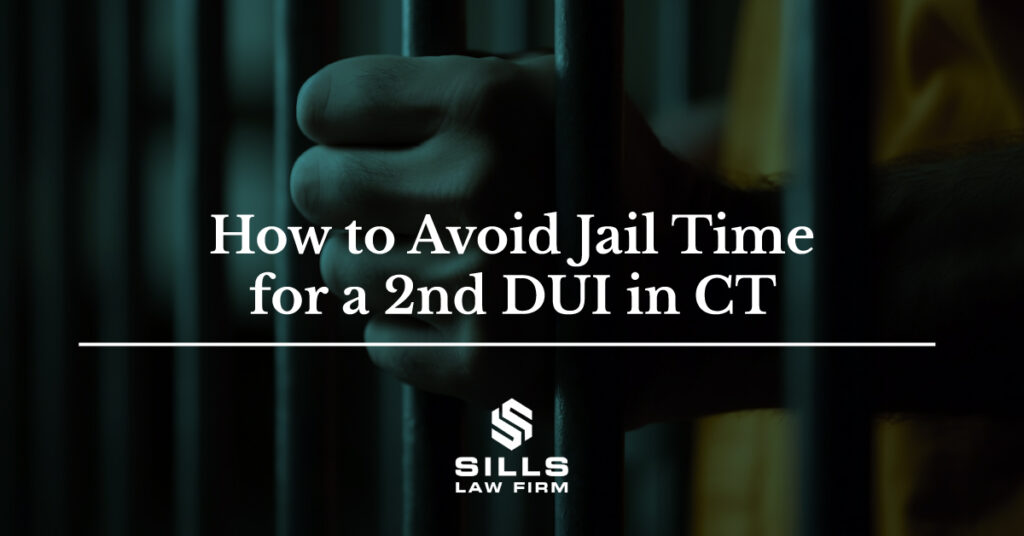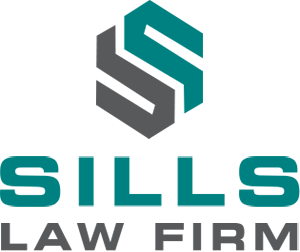While no Connecticut criminal case is ever the same, most do generally follow similar steps throughout the process.
The Process Begins with a Criminal Investigation That Leads to an Arrest
Every Connecticut criminal case starts with an investigation or a complaint. If the police officer feels there is probable cause or there are exigent circumstances, the police officer may arrest you on the spot. In other situations, after building a case against you, a police officer will secure a warrant for your arrest. There’s an investigation that at some point if it leads to an arrest then charges are filed. Then what happens is a bond would be set. If it’s an arrest by warrant, the bond would be set by the judge. If it’s an onsite arrest, the bond is generally set by a police officer or perhaps a bail commissioner.
A Bond Will Be Set and a Court Date (Arraignment) Will Be Assigned
If the bond that is set can be posted, the suspect would be released from custody. They would be assigned a court date which would be termed their arraignment. If the bond was not posted, then the arrestee has the right to have a bond hearing on the next business day at the court so that a judge could review the bond and the conditions that pertain to the release.
That’s what you think when you think about a formal arraignment. It’s really a bond hearing.
Your Attorney May Start Receiving Discovery at Your Arraignment and May Have an Initial Meeting with the Prosecutor
At the arraignment, you may be required to enter a plea. We always enter a plea of not guilty because it protects the rights of our clients. Often times on the first court date, especially when our clients are not incarcerated, we will just meet with the prosecutor. We get copies of the discovery, the file. A lot of courts in Connecticut have open file policies. Some prosecutors will ask us to file motions in accordance with the practice book. We then agree to a continuance date to return and further discuss the case after we have both had a chance to review all the evidence.
Entering a Not Guilty Plea Preserves Your Right to Contest the Case
Often, there will be a few court dates before you even enter any plea. At some point if you’re continuing to contest the case, you would enter a ‘not guilty’ plea which just preserves your right to continue to contest the case and preserves your right to have a trial on the case.
The Majority of Pleas Entered Are Not Guilty Pending a Plea Bargain with the Prosecution
Any time you could change that plea to a no-contest plea or a change it to a guilty plea after you have some agreement in place. That’s why the majority of pleas initially entered are ‘not guilty’ pleas. It does not mean that’s ultimately what the plea is going to be but it just preserves certain legal rights that you have to continue to contest the case.
You May Several Court Appearances even on a Low-Level Misdemeanor Case
There’s not really a standard set number of court dates for any particular case. Often times, evidence is not ready or the prosecutor assigned to your case is not available so there are continuances. A good Connecticut criminal defense attorney will continue your case multiple times unless and until he or she achieves the desired result or has exhausted all options. Cases range from low-level misdemeanors to high aggravated felonies. With low-level misdemeanors, I would say an expectation is that the person could probably expect anywhere from two to four or five court appearances before their case is resolved.
The Process Takes Much More Time than Most People are Aware of
Very rarely are you able to go to court and resolve your case on the first court date unless your goal is to plead guilty and just take whatever sentence the court is willing to give you. This is a common misconception. Often people think that they’re going to court once and get a yes or no and a final decision on their very first court date.
In most cases, there’s a discovery process. There’s evidence that you have to go over. There are multiple meetings with prosecutors before a final decision is reached. That’s really what the process entails. On your more serious crimes, often there are many more court dates because it’s more difficult to come to some resolution or there is more evidence involved and more witnesses.
If the Prosecution and the Defense cannot reach a Resolution, a Judge can Intervene
In the event that the prosecutor and defense attorney cannot reach an agreement on how to resolve the case, the matter could be scheduled for a judicial pretrial. At that point, a judge would supervise the negotiations. After listening to both sides, the judge would give his or her input. While the judge cannot force the prosecutor to drop the charges, the judge could make an offer as to the sentence. If after a judicial pretrial conference, the matter cannot be resolved, the matter would be placed on the trial list.
Regardless of the severity of your Connecticut criminal charge, it is important you enlist the legal guidance of a criminal defense attorney immediately.
If you’re charged with a crime, contact our Connecticut Criminal Defense Attorneys at The Sills Law Firm to discuss your legal options. Our firm is not afraid to challenge police reports or witness testimonies on your behalf.
The Sills Law Firm defends Connecticut criminal cases statewide and maintains offices in Hartford and Waterbury. In addition to Hartford and Waterbury, the Firm regularly appears in the following courts: Danbury, Derby, Meriden, Middletown, Manchester, Enfield, New Britain, Torrington, Rockville, Milford, and New Haven.
Contact us at (866) 971-3909 or fill out our online form to schedule a FREE consultation.






